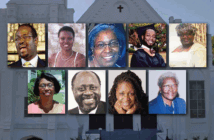How can congregations build meaningful connections with young adults? Brandi Nicole Williams, Director for the African American Church Evangelism Institute, offers eight practical strategies for bridging the generational gap and fostering relationships with Gen Z to build a more relevant church community.
In today’s rapidly changing world, the church faces a critical challenge: engaging and connecting with Generation Z, born between 1997 and 2012. This generation is often characterized by its technological savviness, diverse perspectives, and desire for authenticity, which presents opportunities and obstacles for many churches. To bridge the gap and build meaningful connections with Gen Z, forward-focused pastors and church teams can draw inspiration from a list of ministry recommendations. These recommendations, which are rooted in research and practical insights, can provide a road map for revitalizing church outreach, fostering conversion communities, and creating an inclusive environment for young adults to foster a more relevant church community.
1. Implement shared leadership models.
One of the key findings for connecting with Gen Z is the adoption of shared leadership models. Young adults, including Gen Z, seek inclusion and connection through active participation. They are often critical of traditional hierarchies and prefer flexible organizational structures. By involving young adults in leadership roles and decision-making processes, churches can empower them to shape the direction and mission of the community. Shared leadership distributes power and leverages each member’s diverse resources and experiences. This collaborative approach can help bridge the generation gap and create a sense of ownership among Gen Z.2. Reimagine church.
The church should not be confined by tradition but rather reimagined, meeting the evolving needs of congregants across generations. Many church models have been handed down over generations, but unfortunately church leaders often fail to innovate their church models to address the times and go beyond walls. Hence, ministry should be driven by the needs of the people rather than following a rigid agenda. Drawing inspiration from Jesus’ ministry and the early church’s objectives — which prioritized meeting the community’s current needs — can guide the church in reimagining its role and relevance in the lives of Gen Z.3. Increase the use of technology.
In the digital age, technology is a powerful tool for connecting with Gen Z. Research has shown that adolescents and millennials are spiritually active via social media, often citing their faith as a source of feeling centered. To bridge generational divides, churches should embrace technology to engage with young adults where they are most active. This includes using social media platforms, creating online communities, and providing digital resources that resonate with Gen Z’s values and interests.4. Provide authentic teaching and discipleship.
Gen Z exhibits a genuine desire for spiritual growth and authenticity. Rather than seeking charismatic pastors to preach at them, they desire meaningful relationships and mentors who will walk alongside them on their faith journey. Churches can meet this need by offering teaching that promotes self-study and application of Scripture, equipping young adults to authentically share their faith and engage with the world around them. Discipleship programs should focus on building deep, lasting relationships that nurture spiritual growth and authenticity.5. Listen to understand and improve.
To connect with Gen Z, it is essential for the church to be a listening and learning community. Just as businesses seek to understand their customers and adapt to changing demographics, churches can adopt a similar approach to understanding how young adults experience faith. Listening to disengagement narratives can provide valuable insights into why some young adults leave the church and how they can be brought back into the fold. This effort creates a partnership and opens the door for prodigal sons and daughters to return.6. Host relevant community events.
Gen Z places a premium on lifestyle balance, including having fun and enjoying life. The church has a unique opportunity to model true, abundant life rather than simply preaching about it. Hosting relevant community events that serve the interests and passions of young adults can create a sense of belonging and authenticity within the church. These events should extend beyond traditional “church” gatherings and engage young adults in meaningful ways that align with their values and interests outside the institutional church.7. Conduct research.
Measuring impact and staying informed about the evolving needs of Gen Z is crucial for the church’s effectiveness. Regularly conducting congregational surveys can provide valuable insights into how the church is perceived by young adults and help identify areas for improvement. In an era where spiritual decline during young adulthood is often assumed rather than explored, gathering data can help the church stay relevant and responsive to the changing spiritual landscape.8. Realign with the original mission of the Black church.
Finally, and more specifically, for churches with a history rooted in the Black community, reconnecting with the original mission can be a powerful way to engage Gen Z. The original mission of the Black church emphasized economic, educational, and political advancement. As young adults question the church’s silence on contemporary injustices, they seek leadership and advocacy. Church leaders should consider their role in advocating for social and economic advancement today, aligning with the legacy of the Black church’s mission. Connecting with Generation Z requires proactive, innovative intergenerational approaches to embracing change and inclusivity. By implementing the ministry recommendations outlined in this article, the church can bridge the generational gap and create a vibrant, welcoming community for young adults. By adapting to the evolving needs and expectations of this generation, the church can ensure its continued relevance and impact in the lives of young adults.
This article was originally published in Outreach Magazine and is shared here with permission.
Related Resources
- Understanding Generation Z and Connecting with Their Passions featuring Rock Jones — Leading Ideas Talks podcast episode | In-depth interview
- Gen Z and Mental Health: Insights for Faith Leaders featuring Josh Packard — Leading Ideas Talks podcast episode | Podcast video | In-depth interview
- 3 Ways to Listen Well by C. Gavin Rowe






